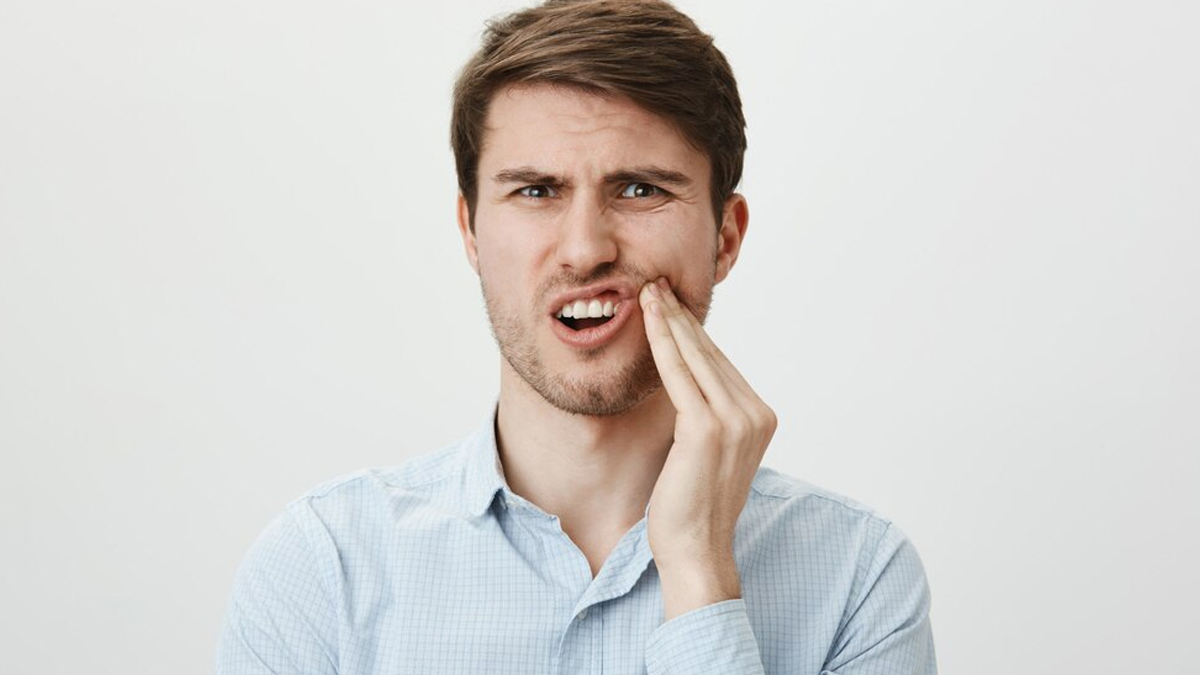
The South Korean series Squid Game became a global sensation upon its release in September 2021, captivating audiences worldwide. Now, fans are eagerly awaiting its second season, set to premiere this December. However, the journey was far from smooth for Hwang Dong-hyuk, the creator of Squid Game, who recently revealed the immense pressure and challenges he faced during the show’s creation.
Table of Content:-
In a recent interview with the BBC, Dong-hyuk revealed that he lost at least "8-9 teeth" due to stress while filming the first season. Additionally, he shared, “Even though the first series was such a huge global success, honestly, I didn’t make much. So, doing the second series will help compensate me for the success of the first one too. And I didn’t fully finish the story."
However, this particular revelation raises an important question—can extreme stress really contribute to tooth loss?
What Is The Link Between Stress And Oral Health?

In an interaction with the OnlyMyHealth team, Dr Nikhil Nayar, Psychiatrist, Sharda Hospital, says, "Long-term stress can have a significant impact on oral health and frequently serves as a trigger for diseases like gum disease, tooth decay, and eventually tooth loss.”
He explains, “The relationship between stress and dental health is complex, with roots in biological processes as well as the behavioural patterns that stress triggers. Long-term stress can impair immunity, making it more difficult for the body to fight off bacterial infections in the gums and around the teeth. This increases the risk of periodontal disease, often known as gum disease. There is a clear link between stress and dental decay because gum disease can cause tooth and bone loss as it worsens, particularly if treatment is not received.”
Periodontal diseases, also known as gum diseases, are caused by harmful bacteria that trigger inflammation in the mouth. This inflammation can lead to damage to the gums and bone supporting the teeth. According to a 2018 study published in the Journal of Oral Medicine and Oral Surgery, stress can worsen this condition. Researchers noted that prolonged stress can indirectly affect oral health by leading to unhealthy habits like poor dental hygiene and smoking. Additionally, stress can directly impact the body's immune response, making it harder to fight off the bacteria.
Why Stress Causes Tooth Loss In Some People

Stress causes the body to release chemicals like cortisol, which can cause inflammation in the gums and other parts of the body when they are released in excess, explains Dr Nayar, adding that elevated cortisol levels impair immunological function, promoting the growth of oral bacteria and aggravating gum inflammation, which can result in gingivitis and periodontitis, the more severe forms of gum disease.
Prolonged inflammation increases the risk of dental decay and eventual tooth loss by weakening the gum tissue and perhaps affecting the structures that support the teeth, he noted, sharing further that because saliva is essential for washing away food particles and neutralising acids produced by oral bacteria, stress-induced dry mouth, which results in decreased saliva production, can cause tooth decay.
Also Read: Vitamins And Minerals That Strengthen Teeth And Prevent Tooth Decay
Understand Bruxism
Another oral problem is bruxism, which is a stress-related behaviour that involves grinding or clenching of teeth, which can raise the risk of tooth loss. According to the doctor, teeth with bruxism experience extreme pressure, which erodes the enamel and makes them chip, crack, or even come free. Additionally, the gums and jawbones may get strained by this continuous grinding, impairing their capacity to adequately support teeth.
Untreated bruxism can cause serious tooth loss or damage over time, particularly when other factors, such as inadequate dental hygiene, exacerbate the condition's impact.
Some of the common symptoms include flattened, chipped, cracked, or loose teeth, along with worn enamel that exposes the tooth's inner layers, causing pain or sensitivity. The jaw may feel sore, tight, or tired due to overworked muscles, while headaches and facial pain are frequent complaints.
Preventive Measures To Reduce Impact Of Stress On Dental Health

Both stress management and careful oral hygiene are preventive strategies to lessen the negative effects of stress on oral health, advises Dr Nayar.
He adds, “Deep breathing techniques, meditation, and regular exercise can all help lower stress levels and reduce the production of cortisol. Brushing twice a day, flossing, and getting regular dental examinations are all crucial components of good oral hygiene.”
For those who suffer from bruxism, avoiding tooth damage by wearing a sleep guard is essential. Teeth can also be protected by drinking enough water and avoiding foods high in sugar or acid. People can significantly lower their risk of gum disease, tooth decay, and even tooth loss by managing stress and its effects on oral health.
Also watch this video
How we keep this article up to date:
We work with experts and keep a close eye on the latest in health and wellness. Whenever there is a new research or helpful information, we update our articles with accurate and useful advice.
Current Version